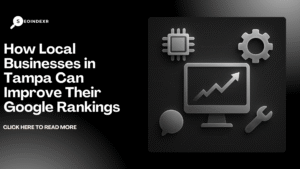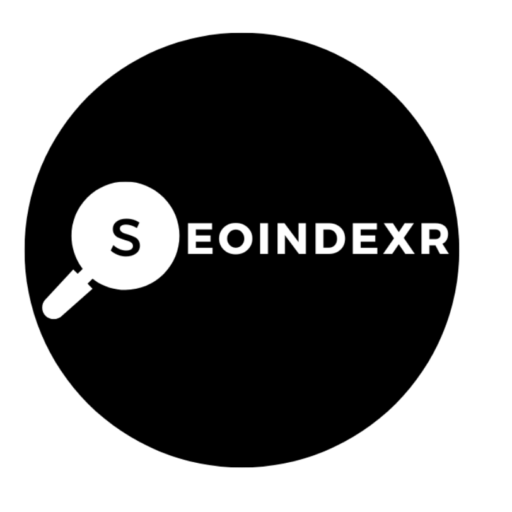How to Automate SEO Workflows with AI
Search engine optimization (SEO) has evolved tremendously over the past few years with the rise of artificial intelligence (AI) and machine learning (ML). Manually managing every aspect of SEO—from keyword research to rank tracking—has become increasingly ineffective and time-consuming. Fortunately, AI-powered tools now offer a smarter, more efficient way to streamline SEO efforts. In this blog, we’ll walk you through how to automate various SEO workflows using AI, with 2024’s latest tools and best practices.
Table of Contents
ToggleWhy Automate SEO Workflows?
Before diving into the how-to, it’s essential to understand the “why.”
- Time-saving: AI can handle repetitive, data-heavy tasks in seconds, which might take hours manually.
- Consistency: Algorithms eliminate human error and fatigue, maintaining a consistent SEO strategy across various content and platforms.
- Scalability: Automation lets teams manage SEO for hundreds or thousands of web pages across multiple sites.
- Real-time insights: Stay ahead of changes in rankings, keywords, and competitors through continuous monitoring.
Key Areas of SEO Automation with AI
Here are the most critical parts of the SEO workflow where automation and AI deliver impactful results:
1. Keyword Research
Keyword research remains at the heart of SEO. With AI tools like SurferSEO, SEMrush, and Ahrefs, you can now automate keyword clustering, intent analysis, and even competitor keyword gap analysis in real-time.
Advanced AI algorithms can:
- Analyze trends and suggest long-tail keywords
- Group and cluster keywords by intent
- Predict search volume changes with predictive analysis
Example: SurferSEO’s “Content Planner” tool uses AI to generate keyword clusters by topic, helping marketers outline entire content silos in minutes.
2. Content Creation & Optimization
Creating high-quality content aligned with search intent used to be a manual task. With AI copywriting tools like Jasper AI, Copy.ai, and Google’s Gemini, you can now craft optimized content at scale while ensuring semantic relevance.
Automated content optimization tools like Clearscope and MarketMuse offer real-time feedback, suggesting:
- Keyword density
- LSI keywords (Latent Semantic Indexing)
- Readability scores
- Content gaps vs. top-ranking pages
These tools integrate with Google Docs or CMS (e.g., WordPress), offering suggestions as you write.
3. Technical SEO Audits
Conducting technical SEO audits manually can be time-consuming. AI allows you to automate site crawls, error detection, and page speed diagnostics.
Tools like Screaming Frog SEO Spider in combination with Python automation scripts and Google Search Console API help with:
- Broken link detection
- Duplicate content identification
- XML sitemap validation
- Mobile-friendliness checks
More advanced platforms, such as Deepcrawl and Sitebulb, utilize AI to forecast how technical issues impact rankings and suggest prioritized fixes.
4. On-Page SEO Automation
AI can now automate meta descriptions, alt-text creation, URL slugs, and title tags. Tools like RankMath AI or Yoast with Natural Language Processing (NLP) integration efficiently optimize on-page content as you edit in the CMS.
Google’s Natural Language API can also analyze a webpage’s entities and sentiment, helping you align your content with user intent and improve semantic SEO.
5. Link Building Outreach
AI-powered PR and outreach tools like Postaga, Respona, and Hunter.io can streamline your backlink acquisition process by:
- Identifying relevant link prospects
- Composing personalized outreach emails using AI language models like GPT-4
- Automating follow-ups
- Tracking responses and link placements
Link building still requires manual approval or human oversight to maintain quality, but AI significantly accelerates the discovery and communication stages.
6. SERP and Competitor Monitoring
Tracking your rank positions, featured snippets, and competitor performance used to require manual checks. With AI-powered tools like SE Ranking, BrightEdge, and Google’s Vision API, you can automate:
- Real-time SERP position alerts
- Competitor content tracking
- Predictive rank forecasting
Some of these tools even provide opportunities for “SERP feature” targeting, identifying quick-win opportunities like PAA (People Also Asked) and local pack features.
Best AI Tools for SEO Automation in 2024
- SurferSEO: Content optimization and keyword clustering
- Jasper AI: AI copywriting for SEO-friendly content
- Ahrefs/Semrush: Keyword data, rank tracking, site audits
- Clearscope: NLP-driven content optimization
- Frase.io: AI for FAQs, brief creation, and outline generation
- MarketMuse: Semantic content mapping and competitive analysis
- Postaga: Automated link building outreach
- Screaming Frog + Python Scripts: Diagnostic and technical SEO
Creating a Fully Automated SEO Pipeline
Here’s an example of how you can tie all your AI SEO tools together into a single automated workflow:
- Step 1: Use SurferSEO to generate keyword clusters by topic.
- Step 2: Input keyword clusters into Jasper or Frase for content creation.
- Step 3: Optimize exported drafts using Clearscope or MarketMuse.
- Step 4: Run Screaming Frog crawler weekly with cron jobs detecting issues.
- Step 5: Monitor rankings, backlinks, and competitors using Ahrefs and SE Ranking.
- Step 6: Launch AI-powered outreach via Postaga for link building campaigns.
All these can be interconnected through platforms like Zapier or Make, creating a seamless and semi-autonomous pipeline.
Challenges and Considerations
Despite the benefits, SEO automation with AI comes with a few challenges:
- Quality control: AI-generated content must still be manually reviewed for E-E-A-T.
- Cost: Premium AI tools come with subscription fees.
- AI Over-optimization: Algorithms may prioritize keywords over user experience.
- Google Updates: Algorithms constantly change and may penalize over-automated practices.
Therefore, always combine AI insights with human creativity and judgment for sustainable SEO performance.
FAQs on Automating SEO with AI
Q1. Can AI fully replace SEO experts?
No. AI can automate and assist in many SEO tasks but cannot replace human expertise, strategy, and creativity. It’s best used as a co-pilot rather than autopilot.
Q2. What is the best AI tool for SEO content writing?
Tools like Jasper AI, Copy.ai, and Frase are currently leading due to their integration with SEO platforms and natural language capabilities.
Q3. Is AI-generated content penalized by Google?
Not necessarily. Google focuses on helpful content aligned with user intent. As long as AI-generated content demonstrates value and expertise, it can rank




